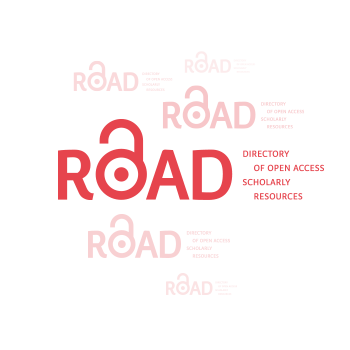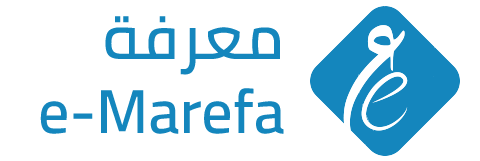Using A Dictogloss Strategy Based Program Supported with Powtoon to Improve First Year Secondary Stage Students' Narrative Writing Skills
DOI:
https://doi.org/10.59994/pau.2024.2.71Keywords:
Dictogloss Strategy, Powtoon, Narrative Writing Skills, First Year Secondary Stage StudentsAbstract
The present study intended to investigate the effectiveness of using a dictogloss strategy-based program supported with powtoon to improve first year secondary stage students' narrative writing skills. Eighty first year secondary stage students from Assiut governorate in Manfalout city participated in the study. They were randomly chosen and separated into two groups: an experimental group (n=40) and a control group (n=40). The experimental group students were taught through using the dictogloss based program supported with powtoon whereas those of the control group studied the same content through the traditional method. The quasi- experimental design of two groups was used in the study. A narrative writing pre-post test was used as the study's instrument. The results indicated that the students of the experimental group performed much better on the post testing. The program was thus proved to be effective in improving their narrative writing skills (writing a good topic sentence, writing a well-organized paragraph, using transition to connect ideas of the paragraph, writing a correct grammatical sentence, write an appropriate concluding sentence, using mechanics of writing). The studies number of powtoon are rare. Therefore, the present study tried to overcome the gaps in the related literature.
Downloads
References
Abdel-Maksoud, N. (2014). The effectiveness of writing conferences for improving EFL secondary stage students' narrative, persuasive writing skills and syntactic complexities. (MA. thesis), Faculty of Education: Zagazig University.
Abdrabo, A. (2020). Developing EFL Preparatory School Pupils' Process Writing Through the Cognitive Academic Language Learning Approach (CALLA). Faculty of Education Journal, 31(121)(part 5), 24-42.
Abo El Hassan, H. (2023). The effectiveness of corpora for improving secondary stage students' English language narrative writing. (MA thesis), Faculty of Education: Ain Shams University.
Albiansya, M.,and Kamsiah, A. (2021). Enhancing students’ writing ability of narrative through using animation video. Journal of Educational Intervention Research, 3 (1), 36-41.
Al-Shamy, A. (2018). Using "weblogs" to improve EFL narrative writing skills among teachers of English prospective. (MA thesis), Faculty of Education: Banha University.
Al-Saleem, A. (2012). The interactive whiteboard in teaching English as a foreign language (EFL) in classrooms. European Scientific Journal, 8(3), 126-134.
Alsibai, D. (2017). Using dictogloss tasks: Attention to form in a collaborative classroom activity with female translation students at King Saud University. Arab World English Journal, 8 (2), 333-348
Amiri, R. and Shirifi, M. (2014).The influence of using interactive whiteboard on writings of EFL students regarding adverbs. International conference on current trends in ELT, Procedia: Social and Behavioral sciences, 98 (2014), 242-250.
Ammade, S. and Ziska, I. (2023). Animation film in writing teaching instruction on narrative text: Working or not working? Journal of Language and Literature, 16 (1), 81-88
Putri, N. A., & Andanty, F. D. (2023, August). Silent animation movie in learning writing narrative text: Students’perceptions. In International Conference on Language and Language Teaching (pp. 367-376).
Daulay, S., Utami, D., Pulungan,M. (2022). Using dictogloss dictation method for improving students’ skills in writing narrative text. Al-Ishlah: Journal of Education, 14(2), 1703-1710
Dewi, M. P. (2017). An analysis of students’ intrinsic learning motives in studying grammar at the English department of Bung Hatta University. Polingua Journal, 6(1), 8-14.
Eid, H. (2021). A reader response and story grammar: Approach based program to develop EFL student teachers aesthetic reading and narrative writing. (PhD Dissertation), Faculty of Education: Zagazig University
Eldreeny, H. (2022). Using strategies based on constructivism theory in teaching English short stories for developing oral, written skills, literary appreciation of Al-Azhar secondary school students. (PhD Dissertation), Faculty of Education: Ain-Shams University.
El-Sharkawy, H., Zaher, A. & Hussien, H. (2020). A suggested program for developing the English writing skills of secondary stage students and reducing their apprehension in the light of writing as a process approach and using Electronic learning, On line Journal 21(special),346-366.Availableat: http://search.mandumah.com/Record/1083841
Fauzia, A. (2021). Teaching through media “Powtoon” to assist students’ in writing narrative text. Journal of Development and Innovation in Language and Literature Education, 1 (4), 416-422.
Ginting, K, Syafitri, D., Nehe, C., Manullang, N. &Tarigan, S. (2019). Improving students’ skill in writing narrative text through animation movie, Linguistic, English Education and Art (LEEA) Journal, 3 (1), 230-237.
Hidayah, N.(2017).The effectiveness of dictogloss in writing narrative text at the 11th grade of SMAN 1 Plosoklaten, Thesis Article, 1 (12), 20-27.
Kartika, R. A. R., Susilo, S., & Natsir, M. (2017). The effect of silent short movie on EFL writing achievement of Vocational High School students. Journal of professional Education, 7(2), 148- 168, Available at: https://doi.org/10.21831/jpv.v7i2.14191
Martia, C. I., Muslem, A., & Fitriani, S. S. (2019). Promoting students’ reading fluency and motivation through shared- reading with animated video story. English Education Journal, 53(9), 1689–1699.
Mayhoub, M. (2022). Using dictogloss strategy for developing secondary stage students’ English writing skills and restorative learning. (PhD Dissertation), Faculty of Education: Beni-Suef University.
Mollaei, F. and Riasati, M. (2013).Teachers’ perceptions of using technology in teaching EFL. International Journal of Applied Linguistics & English Literature, 2 (1), 13-21
Muslim, I.M. (2014). Helping EFL students improve their narrative writing. International Journal Human and Social Sciences, 4(2), 105-112.
Nassar, N. (2017). The effectiveness of a blended learning based program to enhance tenth graders reading and narrative writing skills in Palestine. (PhD Dissertation), Faculty of Education: Ain Shams University.
Radwan, S. (2010). Using dictogloss strategy for developing listening comprehension skills among secondary stage students, (MA Thesis), Faculty of Education: Banha University
Retnowaty, A. (2017). The effectiveness of dictogloss technique to improve students’ skill in writing narrative text. Journal of Education and Humanities, 5(7), 2048-2087.
Sani, J. (2023). The impact of a dictogloss strategy on enhancing secondary stage students' English listening and writing skills. (PhD Dissertation), Faculty of Education: Mansoura University.
Semaan, C. (2018). The effect of using Powtoon on learning English as a foreign language. International Journal of Research, 10(5), 69262–69265.
Soliman, A. (2021). A Connectivism theory-based program using blogs in teaching English to develop secondary stage students' writing performance and attitudes. (PhD Dissertation), Faculty of Education: Assiut University.
Vasiljevic, Z. (2010). Dictogloss as an interactive method of teaching listening comprehension to L2 learners. English Language Teaching, 3 (1), 41-52.
Wafirotul, D. (2019). An analysis powtoon as media for teaching English for junior high school. (PhD Dissertation), Faculty of Education: State Islamic University, Surbaya
Yuliantini, P. (2021). The use of powtoon as a media to enhance EFL English skills, Journal of Educational Study, 1 (2), 28-38
Downloads
Published
How to Cite
Issue
Section
License
Copyright (c) 2024 Journal of Palestine Ahliya University for Research and Studies

This work is licensed under a Creative Commons Attribution 4.0 International License.
مجلة جامعة فلسطين الاهلية للبحوث والدراسات تعتمد رخصة نَسب المُصنَّف 4.0 دولي (CC BY 4.0)











